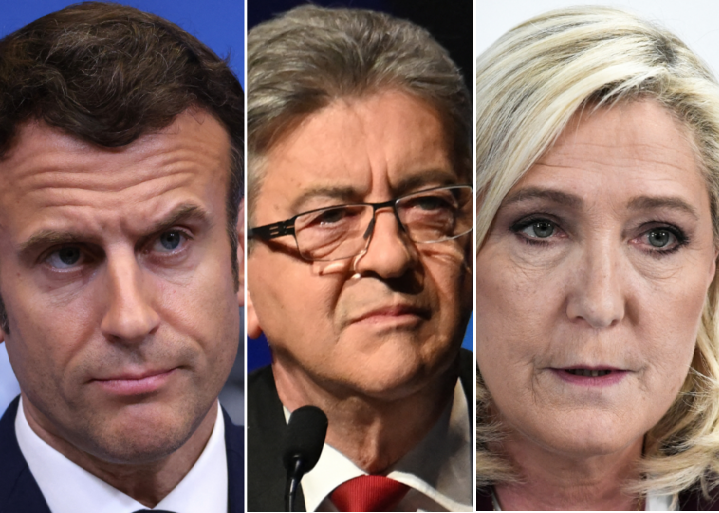
- The French seem to be unhappy with President Macron’s inability to solve the economic crisis, which has worsened since the war in Europe began.
- Conservative factions in France are displeased with Macron’s handling of security issues and his perceived leniency towards immigration without proper integration measures.
- This period of political instability and uncertainty would make it challenging to pass legislation, potentially leading to further dissatisfaction among the French populace.
France has seen an interesting outcome in the recent parliamentary election called by French President Emmanuel Macron. The election took place in two rounds. In the first round, the far-right received the highest number of votes. However, in the second round, it was the far left that emerged victorious. Overall, the far-left achieved the highest vote share and has emerged as the largest party in the French Parliament, followed by the centrist party of President Macron. The far-right party, led by Marine Le Pen, expected to win and secure a majority in the Parliament, but this did not happen. The victory of the far left was a surprise to many, as few expected them to emerge victorious.
It’s important to understand that French President Emmanuel Macron called for snap elections and dissolved the French Parliament shortly after the European Union elections, where the far-right emerged victorious. President Macron, facing tough competition and increasing dissatisfaction within France, made this decision amidst various political, economic, social, and geopolitical crises.
Many are unhappy with President Macron’s inability to solve the economic crisis, which has worsened since the war in Europe began. Additionally, conservative factions in France are displeased with Macron’s handling of security issues and his perceived leniency towards immigration without proper integration measures.
Another major factor contributing to dissatisfaction is Macron’s decision to support sending French troops to Ukraine and increasing France’s involvement in NATO, which many conservatives oppose. They believe this move could drag France further into the conflict. These issues have increased opposition against President Macron.
All of this opposition and rising anti-incumbency sentiment was seen last year during two significant protests. The first was the pension protest against President Emmanuel Macron’s decision to discontinue the subsidy policy initiated during the pandemic, which many elderly people in France relied on. The second major event was the unrest following the killing of a 17-year-old Algerian-French man by the French police, which sparked widespread protests.
These events generated significant momentum for other parties, especially the far-right. The far-right was expected to win by a landslide in the French parliamentary elections, but this did not happen. It is important to understand why.
Many political experts within the far-right party believe they had a great opportunity but failed to capitalize on it. They argue that the far-right party is less opportunistic in France and expected the situation to take a natural course rather than intervening actively. During the two major protests last year, the far-right remained largely silent, missing the chance to leverage the public discontent to their advantage.
Additionally, there is dissatisfaction with the leadership of Marine Le Pen. Many feel she represents old politics and that the far-right needs a new, dynamic leader, as this marks her fourth consecutive electoral loss. The combination of a lack of opportunism and the need for leadership change are considered key reasons why the far-right did not win the elections. Consequently, they not only failed to surpass the centrist party but also fell behind in the recently concluded parliamentary elections.
On the other hand, the far-left coalition, consisting of 16 parties and led by Jean-Luc Mélenchon, is considered much more opportunistic. A significant factor that worked in favour of the left-wing alliance in France was the intense competition between the far-right and the centrists. This rivalry neutralized their own policies, creating an opportunity for the far-left.
The left-wing alliance adopted an entirely different approach from the centrists, focusing on presenting themselves as champions of the people rather than engaging in vendetta politics. They portrayed the centrists and the far-right as self-interested and disconnected from the needs of ordinary French citizens. By highlighting this narrative, the far-left managed to distinguish themselves from the other parties. Their emphasis on serving the people and avoiding divisive politics resonated with many voters, allowing them to gain a massive lead in the elections amidst the competition between the far-right and the centrists.
France is now facing a hung assembly because none of the coalitions have secured a majority in the French Parliament. This situation indicates a period of political uncertainty. Given that no party has a clear majority, the following scenarios are possible:
1. Coalition Attempts: There may be attempts to form a coalition. While there is speculation that the centrists might align with the far-left, Jean-Luc Mélenchon, leader of the largest party in Parliament, has stated that they do not want to form a coalition with the centrists.
2. Minority Government: If a coalition cannot be formed, a minority government might be established. This government would need to seek support on a case-by-case basis to pass legislation.
3. Legislative Gridlock: Without a stable majority, it could become very difficult to pass any laws, leading to a legislative standstill.
4. Possibility of Re-elections: If the gridlock persists and no effective government can be formed, the French Parliament might be dissolved, and new elections could be called.
This period of political instability and uncertainty would make it challenging to pass legislation, potentially leading to further dissatisfaction among the French populace. With the next presidential elections scheduled for 2027, the rise of the far-left has made French politics not only more interesting but also highly competitive. It will be intriguing to see which party or candidate emerges victorious in the future.
Aayush Pal is a freelance writer on contemporary geopolitical developments. The views expressed in his work are entirely his own.
